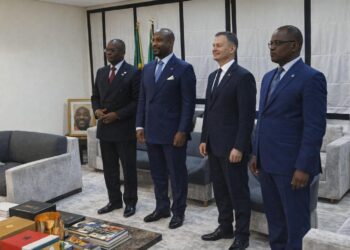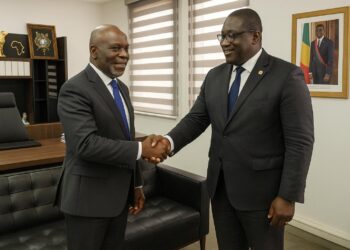Congo’s Betting Vanguard in Historical Perspective
At first glance Brazzaville’s riverfront, more commonly associated with oil tankers and cocoa barges, seems an unlikely epicentre of Central African gaming. Yet over the past decade Congo B has methodically consolidated the nation’s fragmented betting kiosks, legacy PMU parlours and informal lotteries into a vertically integrated enterprise that spans retail shops, mobile applications and live-dealer studios. Industry analysts contacted in Paris and Johannesburg trace the inflection point to 2015, when Congo B secured an exclusive distribution agreement with the French Pari Mutuel Urbain, effectively importing risk-management algorithms and racing content that local competitors struggled to replicate (Jeune Afrique, 2019).
While regional operators often rely on aggressive brand visibility, Congo B chose a discreet, data-driven expansion. Internal figures shared during the firm’s investor briefing in Brazzaville last November indicate a compound annual revenue growth rate exceeding fifteen percent since 2018, a trajectory that now positions the company ahead of pan-African heavyweights still navigating disparate regulatory islands across the continent.
A Rapidly Formalising Gaming Landscape
The Republic of Congo’s gaming legislation, updated in 2021, introduced tiered licensing, mandatory know-your-customer protocols and a progressive tax scale tied to gross gaming revenue. Far from stifling expansion, the statute conferred regulatory legitimacy that international payment processors and auditing firms require before onboarding a Central African client (African Law Review, 2022). Congo B’s compliance department, led by a former Banque des États de l’Afrique Centrale examiner, publicised full ISO 27001 certification in cybersecurity last year, an accomplishment still rare among francophone operators south of the Sahara.
Officials at the Ministry of Finance point to the platform’s geofencing tools and biometric identity checks as evidence that the private sector can serve as an informal laboratory for state digitalisation. A senior treasury adviser described the collaboration as “a textbook case of public-private coordination in line with the national development plan,” an appraisal that underscores the administration’s broader objective of diversifying revenue streams beyond hydrocarbons.
Digital Migration and Fintech Synergies
Perhaps the company’s most consequential innovation lies in its seamless interface with mobile-money ecosystems operated by MTN and Airtel. By pegging minimum wagers to micro-transaction thresholds of 200 CFA francs, Congo B effectively democratised access for low-income bettors without compromising profit margins. Fintech executives interviewed in Kinshasa argue that the same rails could eventually facilitate remittances and utility payments, elevating the betting app into a multifunctional wallet.
Such convergence caught the attention of the Economic Community of Central African States, which in a June 2023 communiqué encouraged members to harmonise digital taxation to avoid revenue leakage across borders (ECCAS, 2023). For Congo B, regional alignment could translate into passporting rights, enabling the platform to replicate its model from Pointe-Noire to Libreville with minimal codebase alteration.
Socio-Economic Footprint Beyond the Cash Desk
Critics of gaming often underscore addiction risks, yet local civil-society groups concede that Congo B’s corporate-social-responsibility envelope has financed vocational training for over two thousand youths in Brazzaville’s Poto-Poto district. The firm’s foundation allocated three percent of 2022 net profit to grassroots football academies, feeding talent pipelines that national selectors monitor closely (Les Dépêches de Brazzaville, 2023).
Economic multipliers are equally salient. The company employs more than one thousand direct staff and contracts approximately three thousand independent agents who earn commissions on digital account top-ups. Central bank data suggest that gaming-derived tax receipts added 0.4 percentage points to non-oil fiscal revenue last year, a modest yet symbolically important contribution given the volatility of Brent crude benchmarks.
Regional Ambitions and Diplomatic Implications
Beyond balance sheets, Congo B has become an unexpected conduit for soft power. By sponsoring the Central African Economic Forum in Oyo and underwriting conference logistics for visiting delegations from Kigali, the company aligns commercial outreach with the government’s agenda of presenting Congo-Brazzaville as an ecosystem open to technological transfer and foreign direct investment.
A Paris-based risk consultancy notes that the operator’s governance charter adheres to OECD anti-corruption guidelines, an alignment that could ease future Eurobond roadshows by attenuating investor concerns over compliance. In the words of a senior diplomat accredited to the embassies along the Congo River, “Gaming, often dismissed as frivolous, has mutated into a vector of regulatory modernity in Brazzaville.” That observation encapsulates the broader trend: in a region where politics and economics remain entwined, Congo B demonstrates how a well-regulated private entity can augment national narratives of stability and reform.












































